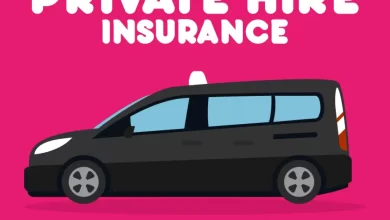Buying Business Insurance: Learn How to Choose a Good One

Getting insurance for your business is a great way to make sure it is protected. Think of it this way – If your business is sued by a customer, a big plaintiff’s attorney is going to go after everything you have – your home, savings, and perhaps even your personal assets.
Safe to say, you would be playing with fire by running a business without a basic business insurance policy.
Having said that, the sheer number of insurance options available to businesses can seem daunting to choose from. Not only do you have to decide between liability, property and workers’ compensation insurance but there are also some add-ons to keep in mind.
The best approach to this is getting as many small business insurance quotes as possible before informing a decision. And to help you narrow down your options, here is what you should be looking for when buying business insurance.
What should your small business insurance plan include?
While there are lots of details to sort through, you need to include some basics in your coverage to set the groundwork.
- General liability insurance
- Workers’ compensation insurance
- Product liability insurance
- Commercial auto insurance
- Cyber insurance (if you manage an IT infrastructure)
Things to consider when choosing a good business insurance policy
Know how much your business insurance should cost
Choosing a policy boils down to what risks you want to insure and how those risks will be covered. To do that, you need to identify your most important assets and figure out the purpose of your insurance. Depending on your plan and the size of your company, your insurance policy should cost anywhere between $300 to $1,000 per year on average.
Consider your scaling potential
What you want is a plan that will scale with you as your business grows, while at the same time keeping costs down. This can be difficult to find, so you will need to shop around for the best value for your business. Pick an insurance plan that will grow with your business, one that will allow you to make changes – and switch drivers, if needed – as your business changes.
Learn about all your industry-specific insurance obligations
Every industry has different insurance requirements. Understanding your industry-specific insurance obligations will eliminate the ambiguity out of your purchase. Your insurance policy should cover all of the potential risks common to your industry to actually be useful to you. (Ex. a restaurant must have fire insurance).
Don’t assume the details, read the terms
It is easy to be lured by an apparently cheaper policy, but don’t assume the details. Read the terms because in many cases, the cheapest option isn’t always the best for your particular needs. For instance, if your office’s location is prone to natural disasters, make sure your policy covers that instead of assuming it does.
Buy an umbrella policy
While some insurance policies already provide you with concrete coverage, an umbrella policy is intended to offer some additional coverage. Insuring a commercial property, for example, is different than insuring commercial liability. So, you need a policy that would cover both commercial liability and property damage. An umbrella policy will help you pick add-ons for your insurance plan to offer 360˚ protection for your business.
How small business insurance quotes can save you money
Getting free small business insurance quotes online will save you both time and money. You can feel confident about your investment knowing you are instantly getting the most competitively priced quotes using an AI-powered policy aggregator. And since you won’t be buying any unnecessary coverage, you won’t have to stretch yourself thin to protect your most valuable assets.




